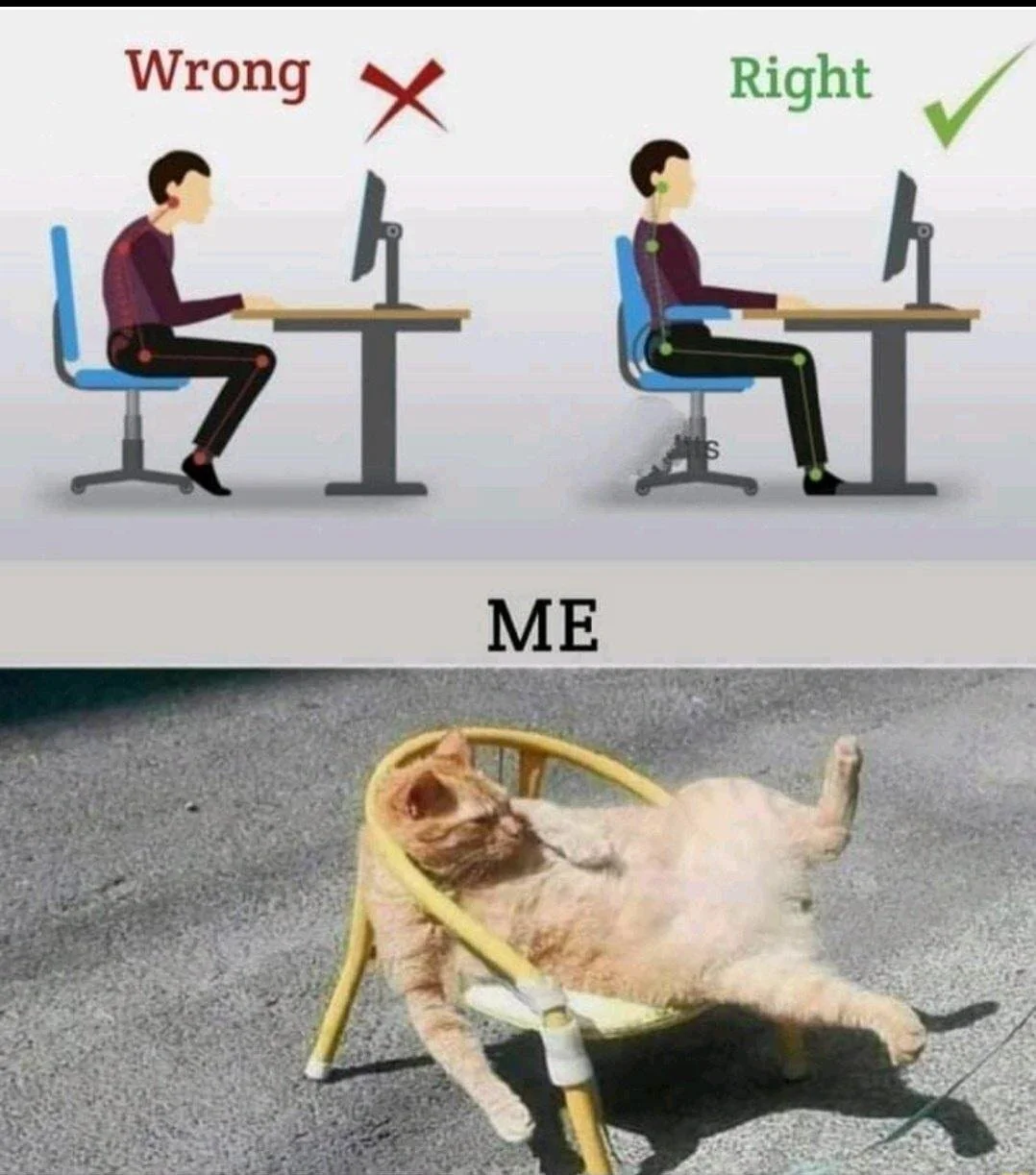February 2, 2025: Does Posture Really Matter?
Hi friends,
Lately, I've seen many people on social media in the health industry preach that there is no correlation between poor posture and pain. They claim it doesn't matter what kind of posture you have when it comes to the pain you experience.
Like most areas in science, if you try to research something with an answer already in mind, you’re going to find evidence to back up your hypothesis. But I’ve talked before about “experts” giving simple solutions to complex questions.
Looking at the research, there is abundant evidence to support the claim that posture doesn't impact pain levels. However, you can find the same level of evidence on the other side saying that poor posture contributes significantly to pain and injury.
So how do we make sense of this conflicting data?
From my clinical experience, I tend to believe that posture DOES matter in most individuals in terms of pain and function.
Poor posture can lead to injury through repeated microtrauma, which occurs when you repeatedly place excessive loads on your body's tissues that exceed their tolerance. In other words, moving improperly over time leads to breakdown and eventually pain.
Let's use common sense to understand the connection between posture and injury. Think about what an overhead press requires—you need to be able to fully reach your arms over your head and have adequate extension in your upper back.
Try this simple test: Stand up and slouch. Try to get in a terrible posture and then raise your arms as high as you can. In the slouched position, you likely cannot fully extend your arms overhead, and you may even notice some pain or discomfort in your neck or shoulders.
Then try to stand up straight with your chest up and reach your arms up again. You’ll notice how much easier it is to reach overhead with “better” posture.
Here's another example: Consider the position of your head and how it affects stress on your neck. A typical head weighs about 10-12 pounds; however, for every inch forward your head moves, there can be up to an additional 10 pounds of force on the neck.
Photo from the Parkside Clinic
Placing large amounts of torque on your neck over time from a forward head posture will likely result in an overload of the tissue of the neck and cause pain.
Now, if you're young or live a relatively sedentary life, you may not notice any problems with having "bad" posture in your daily living.
However, if you want to put your body to use—whether through exercise, sports, or an active lifestyle—you'd likely benefit from working on your posture.
How do we improve our posture?
Your genetics play a large role in the type of posture you have, but there are several things you can do to make the best of what you have.
Here are three effective ways to improve your posture:
If you spend most of your day sitting at a desk, a lumbar roll can promote a more upright posture and limit the amount of unnecessary stress on the spine.
Set reminders on your phone every couple of hours to check your posture. Focus on bringing your chest up and expanding your rib cage. Important note: Many people use the cue to bring their shoulders down and back for better posture, but I advise against this. Most people's shoulder blades are already placed too low, and bringing them down further will increase neck tension and can lead to pain.
Strengthen the muscles that support good posture—particularly your upper back and deep neck flexor muscles. Facepulls and chin tucks are a great place to start building strength in these muscle groups.
Until next week,
Kevin
✍️ Quote I’m reflecting upon
“The fundamental cause of the trouble is that in the modern world, the stupid are cocksure while the intelligent are full of doubt.
❤️ Things I’m enjoying
Research assistant - Consensus. I actually used it to help me write this newsletter. I also use it frequently to peruse relevant research in injury prevention and rehabilitation. If you’re interested in doing your own research, I highly recommend starting with this program.
Book - Endurance: Shackleton’s Incredible Voyage by Alfred Lansing. An epic narrative of the adventure of Ernest Shackleton and his crew after their ship became locked in an island of ice with little hope of rescue.
Documentary - I’m Tim. This is about the life of the Avicii, the legendary DJ from Sweden. It documents his genius abilities in the studio, as well as the dark side of his life including his mental health battles and eventual suicide.

